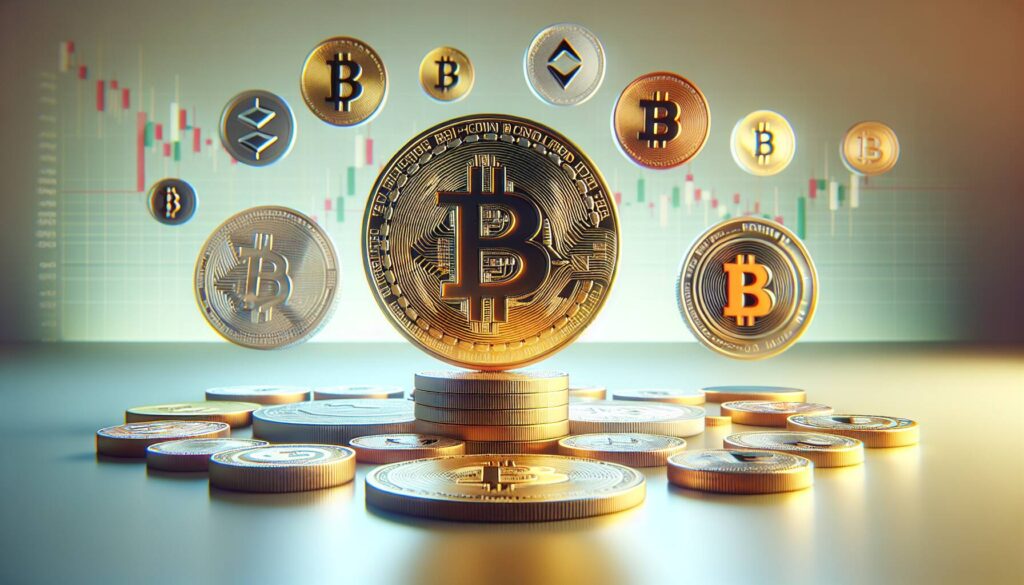The cryptocurrency landscape is experiencing a notable shift as Bitcoin’s value gains momentum, fueled by renewed optimism surrounding US-China trade negotiations. As these economic powerhouses engage in critical discussions aimed at resolving their trade conflicts, market sentiment appears to be leaning towards the bullish side, prompting investors to show increased confidence in cryptocurrencies.
Recent reports indicate that key officials from the Trump administration, including Bessent and Greer, are set to meet with their Chinese counterparts to tackle pressing economic issues. This high-stakes meeting comes at a pivotal time, with the outcomes potentially influencing not just traditional financial markets but also the burgeoning world of digital currencies.
“Stocks Rise on Trade Talks, China Cuts Rates: Markets Wrap,” highlights the interconnectedness of global economic conditions and the crypto market, as investor optimism often spills over into digital asset investments.
As both nations reengage in discussions over tariffs and trade agreements, cryptocurrency traders are keenly watching for how these developments might sway market dynamics. Bitcoin, often regarded as a barometer for investor sentiment in the crypto sphere, is rising alongside traditional stocks, indicating a possible correlation between global trade news and cryptocurrency values.
This interplay between global economic policies and cryptocurrency performance underscores a fascinating evolution in how traders respond to international events. As negotiations progress, the market remains attentive, with many speculating on what these talks could mean for the future of cryptocurrencies amid shifting economic tides.

Bitcoin Rises Amid US-China Trade Talks
This article discusses the recent increase in Bitcoin prices as trade negotiations between the United States and China progress. It highlights how these geopolitical events can influence global markets and cryptocurrencies.
- US-China Trade Talks are Resuming:
- Trump’s team, including officials Bessent and Greer, is engaging with Chinese counterparts.
- Successful negotiations could signify stability in the global economy.
- Impact on Market Sentiment:
- Stocks have risen amid positive market reactions to the talks.
- As trade tensions ease, investors might gain confidence, affecting various investments including cryptocurrencies.
- Bitcoin’s Response to Geopolitical Events:
- Bitcoin prices have seen a bullish trend correlated with the optimism from trade talks.
- This rise reflects a growing perception of Bitcoin as a hedge against traditional market fluctuations.
- Potential Tariff Agreements:
- Discussions around tariffs can directly influence economic outcomes and market stability.
- Resolution in tariffs could lead to a more favorable business environment, further affecting cryptocurrency investments.
The outcomes of these trade discussions could reshape the financial landscape, potentially bringing new opportunities or risks for investors in both traditional stocks and cryptocurrencies like Bitcoin.
Bitcoin Soars Amid Trade Talk Optimism: A Comparative Analysis
Recent headlines highlight a significant uptick in Bitcoin’s value, primarily attributed to the ongoing trade discussions between the U.S. and China. While such developments appear promising for the cryptocurrency sector, they present a mixed bag of competitive advantages and disadvantages—particularly when compared to traditional market responses.
On one hand, the optimism surrounding trade talks tends to bolster risk appetite among investors. In times of uncertainty, cryptocurrencies like Bitcoin often serve as alternative assets, appealing to those seeking refuge from traditional markets. This rise in demand signals that many are shifting their focus from conventional equities to digital currencies as a hedge against macroeconomic volatility.
In contrast, traditional stock markets are also reacting positively to these trade discussions. Companies impacted by tariff fluctuations are benefiting from any signals that negotiations might yield a favorable outcome. Stocks are seeing a notable rise alongside cryptocurrencies, indicating that the optimism surrounding U.S.-China talks is benefitting both asset classes. However, while stocks may experience gradual gains reflecting broader economic performance, Bitcoin’s volatility means its price can swing dramatically on a shorter time frame, presenting a riskier investment appeal.
This situation can benefit a range of investors. Traders who are flexible and adept at capitalizing on rapid price movements may find Bitcoin’s rise particularly advantageous. Conversely, those who prefer stability may find reliance on cryptocurrency problematic, especially given its unpredictable nature. The very volatility that excites some investors can deter others looking for more consistency in their portfolio.
Moreover, the positive sentiment around trade discussions creates a challenging landscape for established financial institutions. Traditional banks might face increased pressure as innovative financial technologies, including crypto assets, gain traction. This is a double-edged sword; while it encourages diversification of product offerings, it also signifies a potential threat to their market share as more investors gravitate towards decentralized financial solutions.
Ultimately, as the U.S.-China trade dialogues unfold, the interplay between stock markets and cryptocurrencies will serve as a fascinating case study on market behavior in response to global economic events. Investors must weigh their appetite for risk against the backdrop of these significant discussions, making it an exciting yet complex time for both asset classes.

















